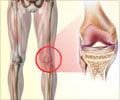Hormone replacement therapy (HRT) may worsen incontinence in postmenopausal women, a new study has suggested.
Hormone replacement therapy (HRT) may worsen incontinence in postmenopausal women, a new study has suggested.
"Our main finding, which comes in particular from one huge trial, is that one type of HRT - systemic conjugated equine estrogen (CEE) - may make urinary incontinence worse," said June Cody, a methodologist at the Cochrane Incontinence Review Group at the University of Aberdeen in Scotland."In addition, in this large trial, women who did not have incontinence at first were more likely to develop incontinence than those who took a placebo," the researcher added.
The systematic review by Cody and colleagues also showed that significantly more women who used local (vaginal) oestrogen reported that their incontinence symptoms improved, compared to those who used a placebo.
However, said the researchers, that result came from small studies that might have had limitations.
Writing a report for The Cochrane Library, the researchers have highlighted the fact that millions of women experience incontinence - an involuntary and embarrassing leakage of urine that can lead to social isolation and even stigma.
There are several kinds of urinary incontinence, including stress and urge incontinence.
Advertisement
"The original (2003) Cochrane review on incontinence grouped women according to different types of incontinence - stress, urge or mixed. In this update, we rearranged things to look separately at local or systemic delivery. We then honed in on the different types of oestrogen. When we looked at the research with CEE, it seemed to make all types of incontinence worse," Cody said
Advertisement
In the review, overall 9,417 women received oestrogen systemically, from oral tablets, skin patches or subcutaneous implants. Another 735 women received oestrogen locally by means of a vaginal cream, tablet, vaginal ring or other device.
The studies included control groups of women who received a placebo or a different treatment. Half of the trials took place in the United States.
Cody said that the results of two trials, including 17,642 women, dominated the findings.
One study reported on a subset of women from the Women's Health Initiative, which collected incontinence data on 23,296 women - 16,117 of whom were incontinent. The second largest study included 1,525 women with incontinence.
The findings of both studies were the same, whether women were taking oestrogen alone, or oestrogen and progestogen (for women with an intact uterus): Incontinence worsened for those using HRT with conjugated equine estrogen.
Cody said that smaller studies showed systemic oestrogen to help incontinence.
The women in the largest study "were reportedly healthy, post-menopausal women and, on average, their incontinence got worse if they were allocated CEE. This is what the data show from a randomized trial - the best level of evidence for comparing different interventions," said Cody, who is also a member of the Academic Urology Unit at the University of Aberdeen.
According to Dr. Charla Blacker of the Henry Ford Health System in Detroit, who did not take part in the review, doctors should take note that the way oestrogen therapy is administered could make a difference in whether incontinence improves or gets worse.
"These findings should be discussed with women who are contemplating using estrogen or hormonal therapy for relief of menopausal symptoms, particularly those who already have incontinence symptoms," Blacker said.
Source-ANI
RAS















